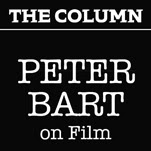Barbie is confounding: In addition to setting box office records, the movie has also inspired a flood of commentaries about its presumed “message.”
Yes, there have been more editorials about a doll than about a bomb. Why did Barbie complain about “cognitive dissonance” at a Mattel corporate meeting? Or denounce “sexualized consumerism”? For that matter, was it rude to joke about Proust, the revered French novelist?
Were director Greta Gerwig and her co-screenwriter, husband Noah Baumbach, nurturing a hidden subtext in their script?
And should we care? The big news on Barbie: it’s headed for $1 billion in worldwide ticket sales by this weekend, vastly surpassing Oppenheimer, which has a longer running time and more limited release schedule (it’s at $181 million U.S.).
Even Barbie swag is as inescapably pervasive as it is numbingly pink. The caps, T-shirts, tote bags, sunglasses and toy cars have arrived like a wave of Pepto Bismol. Try entering a bar wearing a hint of Barbie regalia, and heads turn while the talk swings away from residuals.
Why did Mattel, the toy giant, co-produce a feminist movie that satirizes its own executives? Sure, it’s all about big business, but did that justify Ariana Greenblatt’s Sasha shouting “you fascist” to Barbie?
To be sure, an analysis of swag may not be appropriate at a time when pickets are circling the block and negotiators have been silent since July 12. Hollywood has a right to be glum, which may be why Barbie — even Barbie swag — provides a fascinating distraction.
I have been a student of swag over the years and am continually bemused by the way in which it reflects and distorts the mood of its subject matter. No character in Casablanca ever uttered “Play it again, Sam,” but we all wore those T-shirts. Woody Allen even shot a movie with that title.
T-shirts asserting “I’m gonna make you an offer you can’t refuse” were worn by crew members on The Godfather, which didn’t help location scouts who were repeatedly turned away by wary homeowners.
The normally congenial Clint Eastwood was furious when ”Eliza” T-shirts turned up following the wobbly release of Paint Your Wagon. Eastwood famously detested his singing rendition of “I Can Still See Eliza” and felt that his enemies were taunting him with the swag.
The basic plot of Barbie, with all its jolting interruptions and semi-feminist diatribes, is downright traditional compared to those films. Barbie and Ken, like Dorothy in Wizard of Oz, are traveling from Kansas to Oz, except they’re really going from “Barbieland” to Los Angeles with a major stop at Mattel.
While Barbie and Ken are girlfriend-boyfriend, she is haunted by thoughts of death, not lust. Fortunately her friend Weird Barbie is conveniently around to help her re-connect with reality, albeit a weird reality.
Despite its bulging budget ($145 million) and complex messaging, the Barbie shoot was relatively peaceful, according to reports. Gerwig, the director had run into corporate conflicts on her previous movie, an adaption of Little Women (the seventh).
Nearing the end of her shooting schedule, Gerwig made a major change in that Louisa May Alcott plot: Jo March, her heroine, would not get her man but instead would get her book published, which meant more to her.
The studio liked the original ending but Gerwig nonetheless prevailed. Given the historic success of Barbie, it’s doubtful she will encounter any further blowback from studio executives.
Similarly, Barbie never quite “gets” Ken but, on the other hand, she takes showers without water, eats breakfast without cereal and only drives pink automobiles. Ken, too, may prove evanescent — until the sequel.

